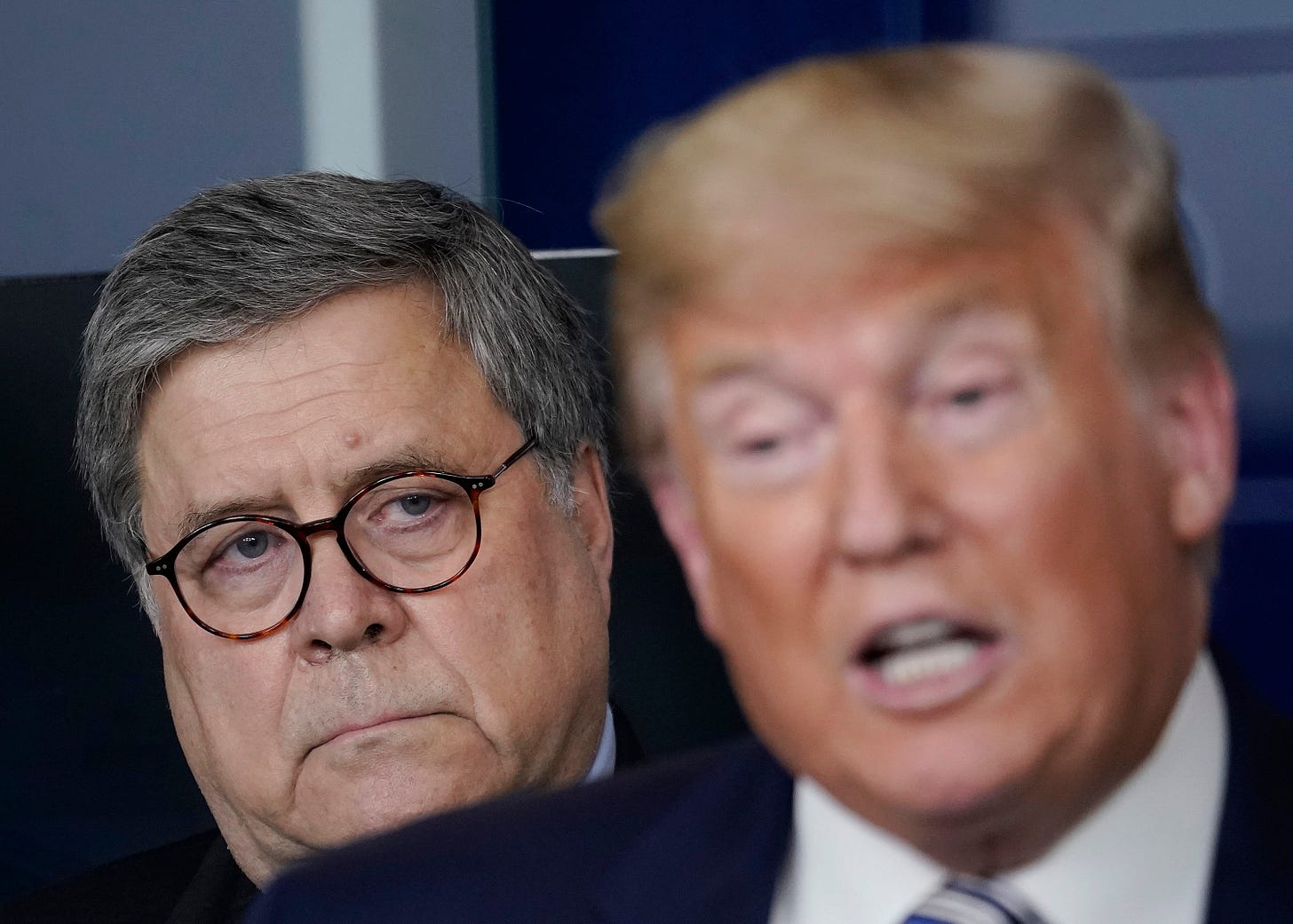Bill Barr Wants Trump to Know He's Reliable in a Pandemic, Too
The attorney general is happy to pretend that he'll take on stay-at-home orders so that the president remembers whose side he's on.

In a radio interview Tuesday, Attorney General Bill Barr unveiled a threat against governors who do not open their states for business.
We have to give businesses more freedom to operate in a way that’s reasonably safe. To the extent that governors don’t and impinge on either civil rights or on the national commerce—our common market that we have here—then we’ll have to address that.
“States’ rights” was once conservatives’ rallying cry against legal action against local government by the Department of Justice. But now Barr decries “states’ wrongs” in support of his patron’s push to “re-open the country” and end “stay-at-home” policies:
These are unprecedented burdens on civil liberties right now. You know, the idea that you have to stay in your house is disturbingly close to house arrest.
Seldom has an attorney general’s nod to pressure from partisan operatives sounded so high-minded. As reported, this is the backdrop for his statements:
On Friday, the Conservative Action Project, a group that includes a wide range of Trump supporters, right-wing legal activists, Tea Party organizers, anti-abortion crusaders, and big business lobbyists, called on the Trump administration to take the protesters' fight to the courts and sue to force states to lift the restrictions, which medical experts and Trump himself have credited for saving millions of lives.
And there lies the key difference separating Barr’s legal threat from the posture of his predecessors during the Civil Rights movement: Previous attorneys general intervened with states to disrupt unlawful segregation. By contrast, AG Barr speaks of intervening to disrupt local lawful protections of the public’s health. The Supreme Court has long upheld the states’ broad discretion to determine what is needed to safeguard health, particularly in epidemics.
Barr’s threat is short on legal force. But as is depressingly often the case, his declaration seems designed less to serve the rule of law than to advertise loyalty for the president’s current reelection gambit.
How stark the contrast with Dwight Eisenhower’s attorney general, Herbert Brownell, at the dawn of the civil rights movement. He, too, came up through the ranks of Republican politics and elite law firms. But his loyalty was to the Constitution.
In 1954 the Supreme Court sought the federal government’s participation in a private citizen’s suit against a local school authority—Brown v. the Board of Education. Brownell knew well his president’s preference for neutrality and Eisenhower’s political reluctance to offend powerful Southern Senators whose legislative support he needed. Still, when asked directly at oral argument the attorney general’s position on the question the government’s brief had avoided, the assistant attorney general answered exactly as Brownell had instructed: The 58-year-old rule of “separate but equal” was unconstitutional and should be overturned.
The rest is history.


